Tire Store
MYERS KEMPTVILLE CHEVROLET BUICK GMC’S TIRE CENTRE
Click here for an easy and fast way to contact our tire experts about pricing and information that best suits your tire needs. We offer your choice of Good, Better, and Best for both all season, and winter tires and rims to fit your individual budget. Need a rotation or tire change in Kemptville? We’ve got you covered. Contact us today and learn more about our Tire Centre offerings.
FIND TIRES CONTACT PARTS SCHEDULE SERVICE

GET YOUR TIRE CHANGE WITH MYERS KEMPTVILLE CHEVROLET BUICK GMC
Tires are an essential part of your vehicle’s safety systems. After all, they’re the only part of your car, truck, or SUV that actually touches the road. The exceptional performance you expect to receive from your vehicle rests entirely on four pieces of rubber, so it’s important to have the correct tires for every seasonal change. If you’re looking to get a tire change in Kemptville, be sure to stop by and speak with the tire experts at Myers Kemptville Chevrolet Buick GMC today! We’re proud to offer an incredible selection of summer tires, winter tires, and all-season tires to suit every budget. More than that, if you’re unsure about the tires you need for your car, you can count on our friendly Tire Store team to provide the expertise to choose the best tires for your vehicle.
View Our Winter Tire Packages!

Wheel Alignment: Why It's Important

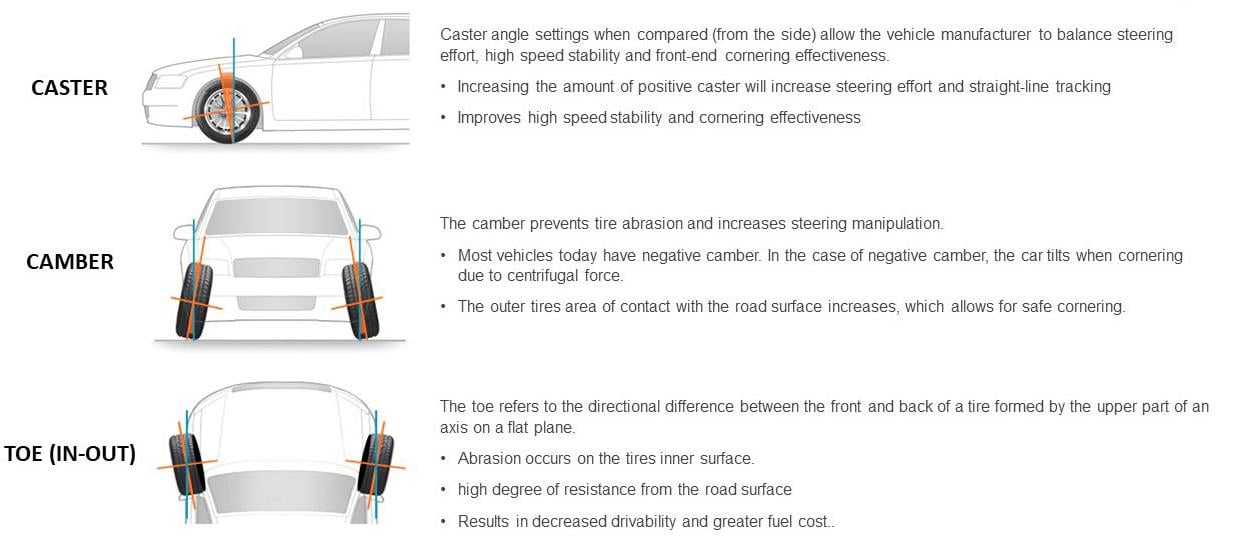
All Season vs Winter Tires
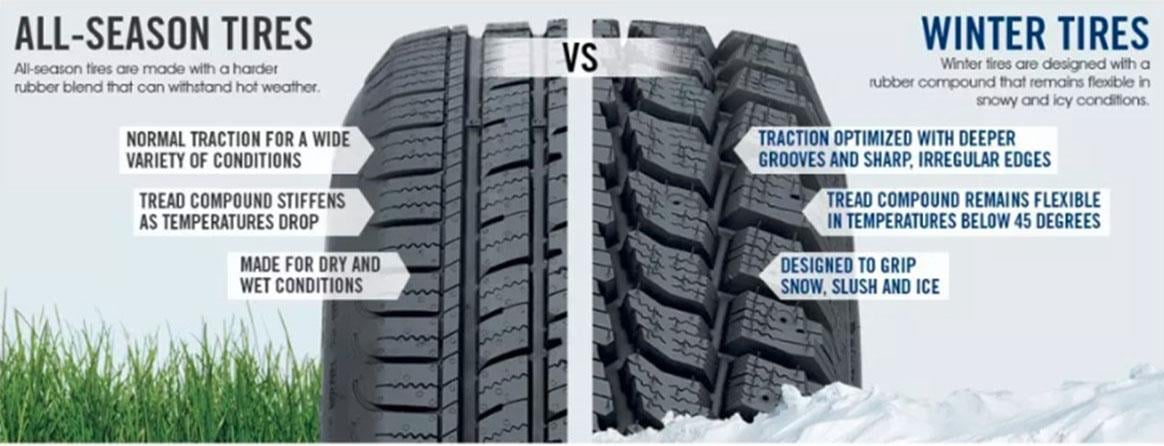
Tread Depths: How To Measure
- With the quarter test
- With a tread depth gauge
- With a tread depth gauge
1. Put the edge of the coin into the tread, with the Queen going in head first.
2. If the top of the Queen’s head is covered by tread, that’s good.If the top of her head is entirely visible, it’s time to replace the tire.
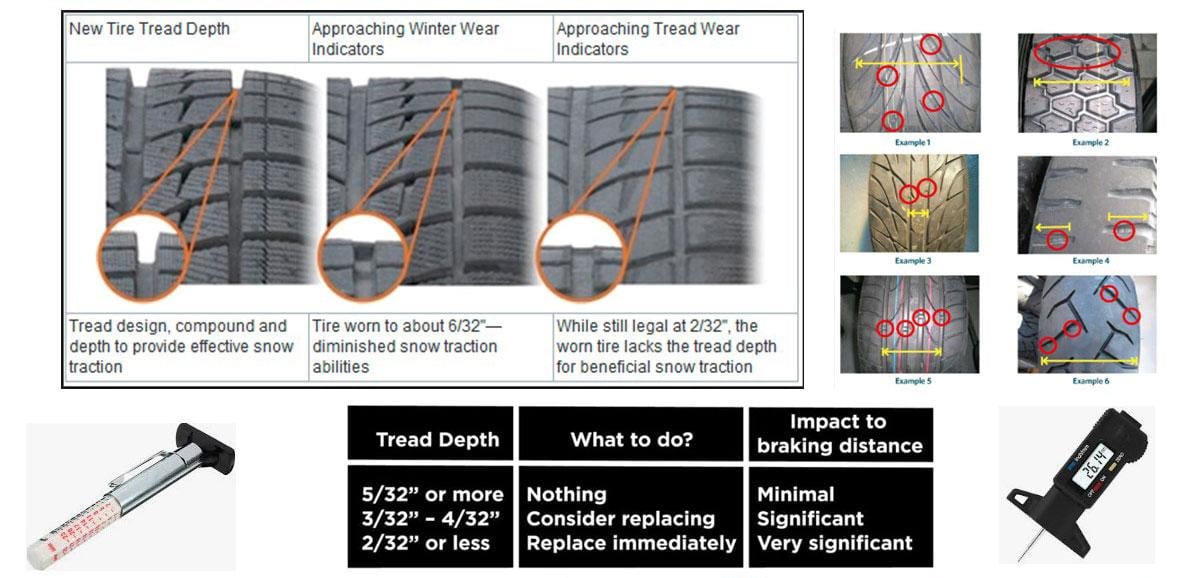
Different Kinds of Tread Pattern

How Long Do Tires Last In Storage

Tire Storage Program
Myers Kemptville GM stores tires! We offer a convenient program that is designed to take the time and effort out of your seasonal tire storage routine. Bring your vehicle in to our Service Department at and our vehicle technicians will install your current tires and/or rims and conveniently store all your off season tires.
If you need to buy new Summer, Winter, or all season tires, you will receive complementary tire storage for the first season.
Why store your tires with us? We offer a secure tire storage facility that saves you time and space when coming in to have your tires changes each season. To find out more, call our Service Consultants at (613) 258-3403 or schedule your next service appointment online.
We will meet or BEAT any competitor’s written quote on the same make & brand of tires.
Different Kinds of Tire Wear
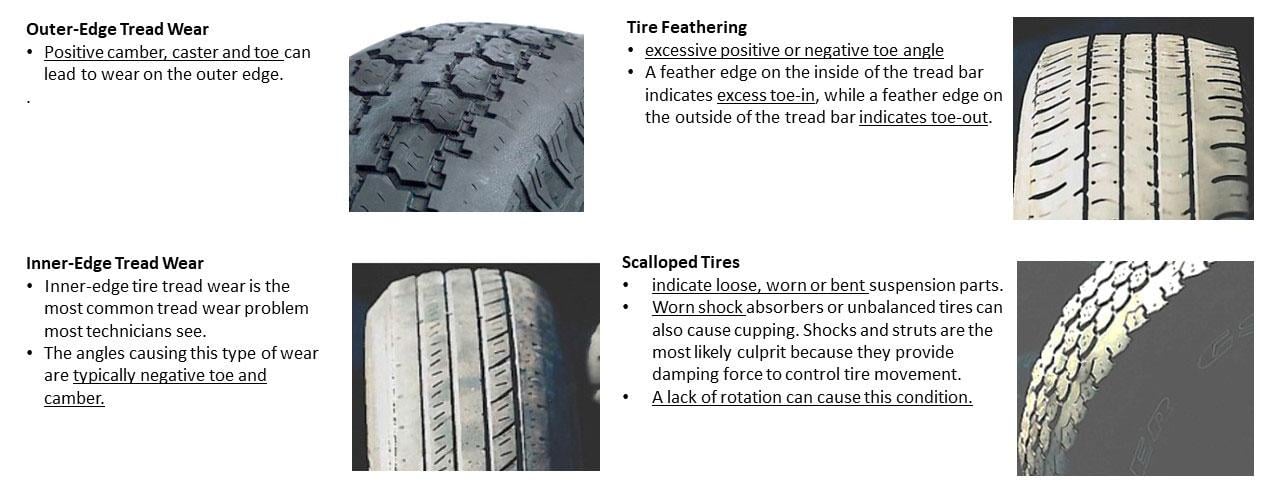
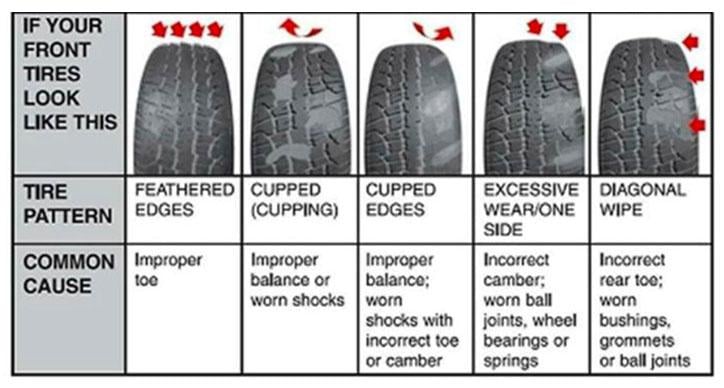
Reasons to Change Your All-Season Tires
The air our tires encounter at highway speeds can easily be compressed and moved out of the way with relative ease. However, the same isn’t true of liquids. When water collects on the road surface during rainstorms, the water depth, vehicle speed and vehicle weight, as well as the tires’ tread designs and tread depths collectively determine when and if the tires will be forced to hydroplane and how quickly they can stop a vehicle.
Design elements that impact wet grip:Groove ratio: The more/larger grooves a tire has, the better the tire pumps out water.
• Shape and layout: The shape of the tread patterns (symmetrical, directional, and asymmetrical) contributes to how quickly water is drained.
• Sipes: These are thin slits in the rubber surface of the tread. They improve traction in wet or icy conditions. Acting like windshield wipers, sipes help the edges and grooves of a tire to drain away water.The surface cracks that occasionally appear have been called many things: Weather Checking, Weather Cracking or Ozone Cracking. These small cracks typically develop in the sidewalls or at the base of the tread grooves. Depending on their severity, they may be cosmetic in nature if they don’t extend past the rubber’s outer surface, or may be a reason to replace the tire if they reach deep into the rubber.
Tire Pressure, Why It's Important

When To Change Your Tires

Stopping Distance
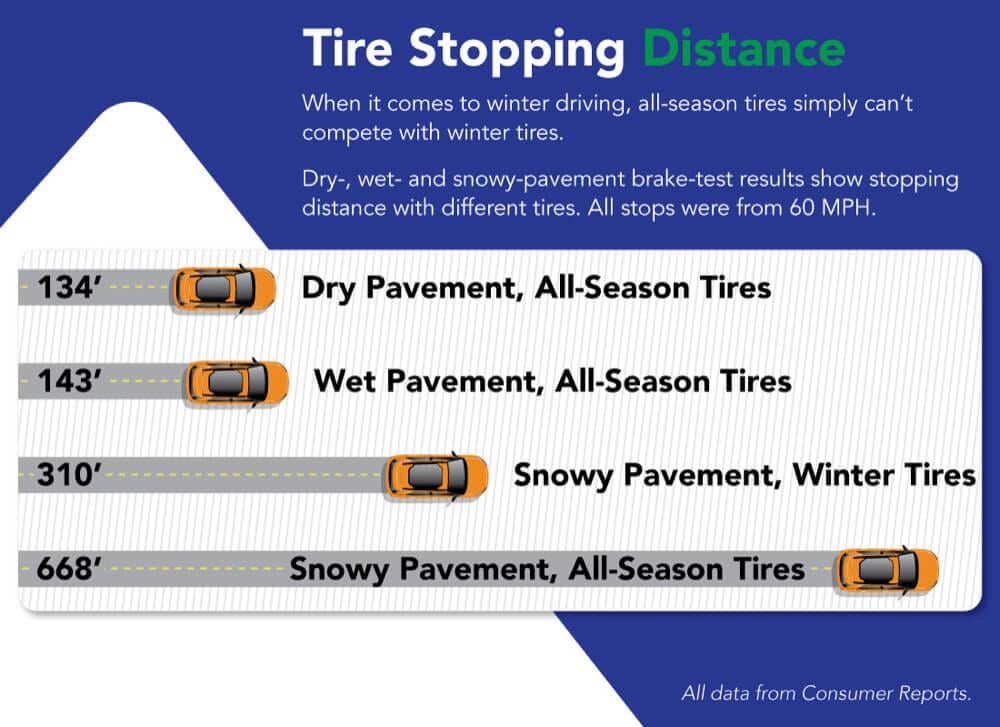
Types Of Tires
Types Of Tires
There are a large variety of tires available for purchase, each type designed for a specific purpose. Tires are built to respond to different types of weather, driving habits, and size of many kinds of vehicles.
Summer Tires
Designed primarily for dry and some wet driving, summer tires are not built to perform well on snow and ice, or in cold temperatures. Summer tires are designed for hotter weather, providing maximum traction and resilience on the road. Summer tire tread design ranges from orbital grooves, to complex directional patterns, promoting various levels of handling in summer driving conditions. Not sure which summer tire is right for your vehicle? Consider the following:
For most vehicles, the original tire size is a good guide in choosing new summer tires. However, you should take into account that the larger and wider the tire, the increased likelihood of hydroplaning. To help prevent this, choose a summer tire with directional tread design.
Winter Tires
With the volume of vehicles equipped with all season tires, many drivers are unaware of the benefits of winter tires. Winter tires are designed to provide effective traction in difficult winter conditions like snow, ice and sleet as they feature a combination of specialized tread design and compounds that provide more effective traction in Canada’s difficult winter conditions.
Selecting the right winter tires for your vehicle should be based on your driving style and purpose of your vehicle. Having the right winter tires on your vehicle will offer optimal control and traction, while helping to maintain the vehicle’s fuel-efficiency.
All Season Tires
Perhaps the most economical type of tire is the “all-season” tire, because it is designed for year round use. All-season tires feature a blend of technologies that make use of different compounds and detailed tread configurations, designed for most driving conditions like snow, rain, heat, cold etc. It’s the “almost” perfect tire because it offers a smooth, quiet ride, with exceptional handling in many conditions.
All season performance does not mean best performance, however. The trade-off is a loss of traction and compound stiffening anywhere below 7 degrees Celsius (44.6 F). Also, while all-season tires offer greater highway ride comfort, they are not as effective on snow as dedicated winter tires.
All-season tires come in two classes: Passenger Tires and Touring Tires. Passenger Tires feature a smoother ride and longer tread-life while Touring Tires offer low noise and enhanced handling characteristics.
